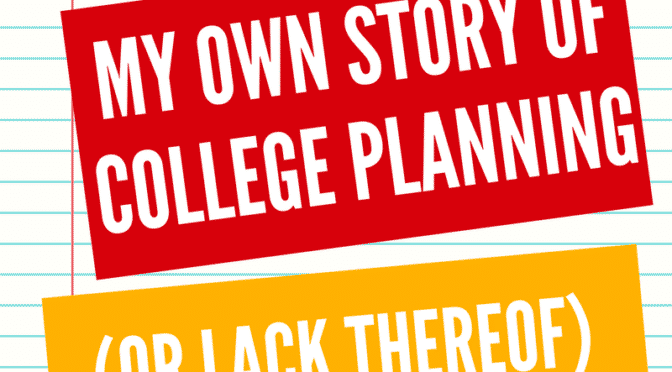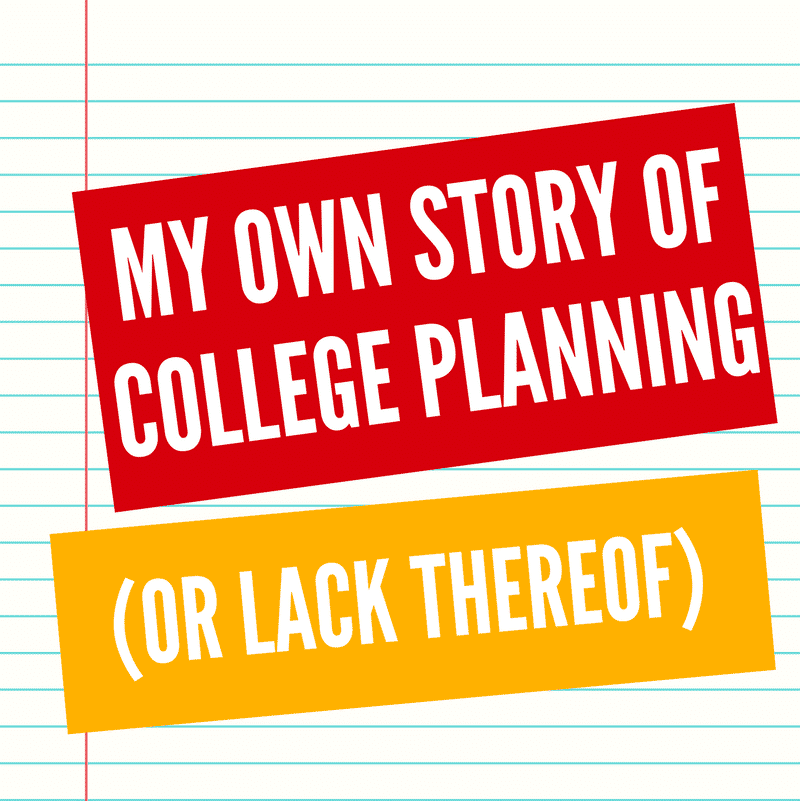Let's Get Started
You'll get the most value from financial planning if your specific goals and needs match a firm's philosophy and services. Let's learn more about each other.
Ready to Get Started?


One of the exercises I do with all my clients is to have them imagine what their lives look like five or ten years from now, and how that might be different from today. With college planning clients, especially for those with a student in high school, they expect a dramatic change: their student has an honest-to-goodness degree in hand, and they’re let loose on the world to explore everything a young adult could want, like freedom, a career, and adventure. It’s exciting! And for some of those students, they and their parents may be facing the challenge of how to pay for that education’s loans now coming due.
After doing this exercise with clients, it got me thinking—how would I have answered the question when I was 18 and entering college, over 20 years ago? What was my own story of college financial planning?
In a word, ignorantly. In the sense of, I was always conscientious about money, and thought I was making good decisions, but I didn’t have all the facts or the best advice. Honestly, I don’t even know what advice was available in the spring of 1995 when I was making that final college decision, but it certainly wasn’t as sophisticated as the tools I have today.
I had narrowed my college decision down from about 6-7 schools to one: Concordia College in Moorhead, MN. Although I couldn’t have predicted it when I was a sophomore or junior in high school, Concordia ended up being the right “fit” for me, both at the time and definitely in the long run. And “fit” is what all the parents and students are striving for, right? Score one for Quinn’s college decision—a good fit.
In terms of making a financial decision around college, I had no thought of implications. Going in to my senior year of high school, I quite literally thought, “I am a good student, I imagine some school will largely pay for me to go there.” I did not know what it cost to go to college, or how to get money from schools. I didn’t know that I was missing out on scholarship money by not deciding earlier in the process, or that we could have pushed back more aggressively on the financial aid office. I was ignorant that there were ways to save on the cost of college.
The price of my undergrad education was $18K in student loans for me, and about $22K for my parents, plus amounts paid by both of us in cash during those years. Concordia was a ‘cheap’ private school at the time, around $14K per year when I started. I feel like an old man now, telling people that my first year of college cost $14K! (Let’s not even address all the private loans I took out for my later MBA, that’s another topic!) My student loan payments were about $200 a month, once I started working. I remember thinking at the time that the amounts seemed huge, but also manageable, and like a worthwhile tradeoff for the experience I had.
And that’s what mattered most to me—I enjoyed my college experience, I learned a ton, and met some of my best friends and wife at school. Sure, it cost a lot, but I got a lot out of it.
But I also learned a few things about the college planning process:
That’s my tale, of a kid who found a college he liked, which cost a lot of money, and how he and his parents paid for it, and perhaps paid more than they needed to. That kid also had an amazing experience at said college, which means I don’t regret any of those financial missteps now.
Because I found my undergrad (and grad) experience to be so important and formative, and because I think there are solutions for the financial missteps, I’m eager to help others now when they enter this stage of life planning. College is expensive, but there are ways we can save on and for the cost, and make sure that students and parents achieve what they want from their college experience.
Want to learn more about college planning, and how a smart strategy can save you thousands and ensure the right school fit for your child? Setup an appointment.